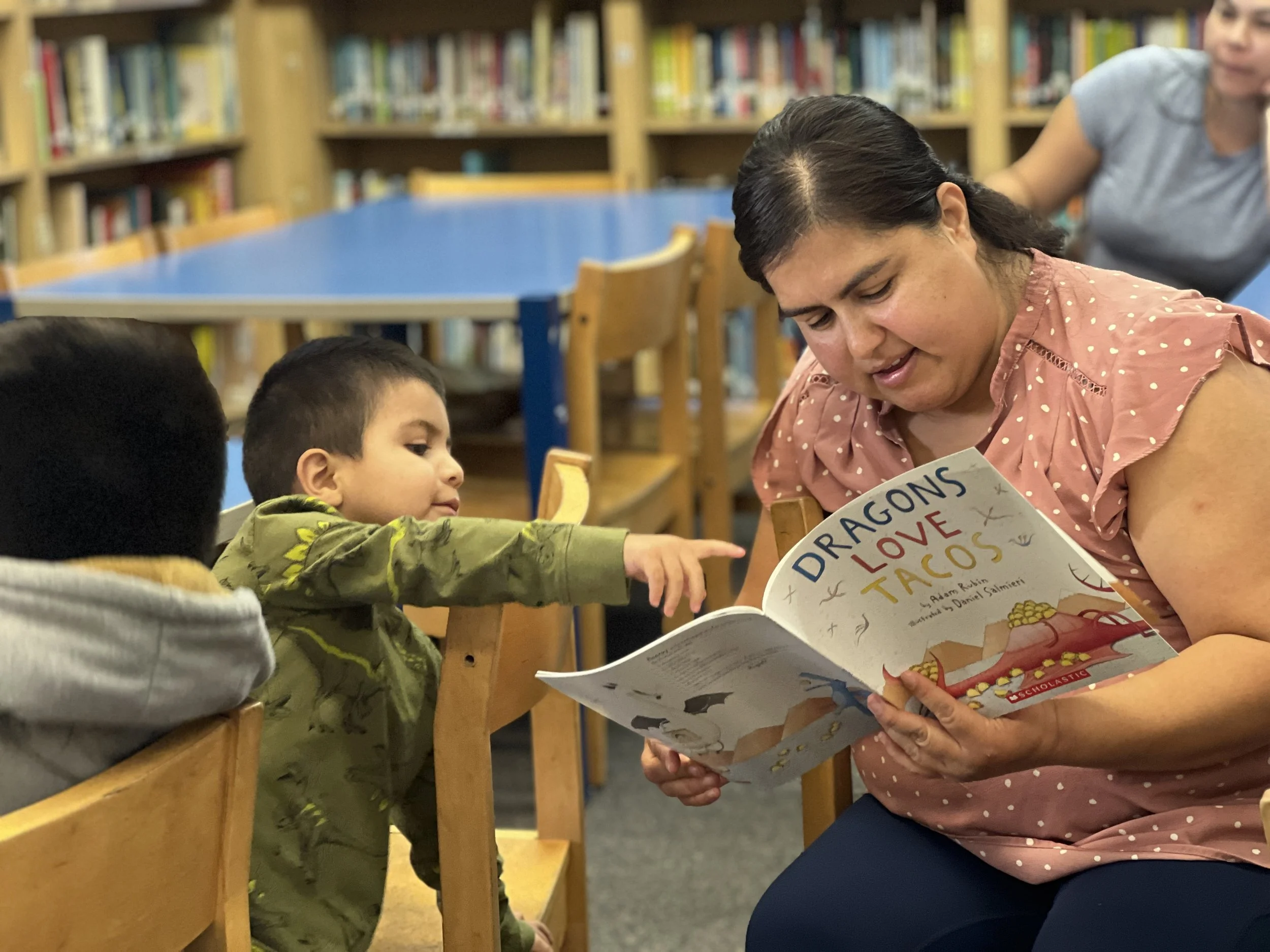Words Alive staff and volunteers in our classroom and family reading programs apply proven techniques that work for getting - and keeping - kids engaged with books.
We are sharing those techniques here to help you keep the kids you love reading all year round!
Reading with Younger Children:
Make a Reading Time: Pick a special time each day to read together - before bed or after dinner, or any quiet time during the day. Sharing stories every day helps make reading a habit.
Try Different Kinds of Books: Explore fun stories, true facts, poems, and comic books. Trying a variety of genres increases the fun while sparking curiosity in new topics!
Visit the Library: Visit often and explore. Let your child pick out books they like and ask why they made their selections.
Talk About the Books: Ask your child what they’re reading. Discuss characters, the story, and their favorite parts of the book. This helps them deepen their understanding the book and find connections that relate to their lives.
Be a Reading Role Model: Let your child see you reading too! Share what you’re reading and why you like it. Showing children that reading is fun for everyone encourages them to develop an identity as a reader.
Reading with Older Children and Teens:
Explore Together: Finding a book that interests your reader helps them get off on the right foot. Look at reading lists with your reader. Options include online sources like Goodreads, Seventeen: 56 Books for Teens, and Teen Vogue’s Summer Reading List. At the library, try skimming book covers, descriptions, and reviews. Asking for suggestions from the Youth Services Librarian is always helpful too.
Consider the Reading Level: If a book is too hard for your reader, there's a good chance they'll give up. If a book is too easy, a reader may find the content too simple and not interesting.
Pick Books They’ll Enjoy: School summer reading lists have their place and purpose, and may also be enjoyable, but if you want an older child or teen to read, it’s important that they find something captivating in the story or can see themselves in the story.
Consider an Incentive: Particularly for reluctant readers, setting goals capped off by a prize can be a motivator. For example, finish one book, then three, then five with a modest reward at each stage can help keep things moving through the summer. You know what will 'reward' the reader best, whether it is ice cream, a trip to a favorite store, or a day off from chores!
Read Alongside: Young people learn by observing, sometimes even better than being instructed. Set a goal (reading a chapter, a certain number of pages, a book) by a certain time, then sit down with each other over a favorite snack and talk about what you each enjoyed, learned, and didn't like. Then, pick the next book to read together. Show them reading is important and fun.
Read Out Loud: Especially when reading in a second language, reading out loud, together, can help develop the skill of reading for meaning (phrasing, learning how to pause at punctuation) as opposed to simply translating words.


